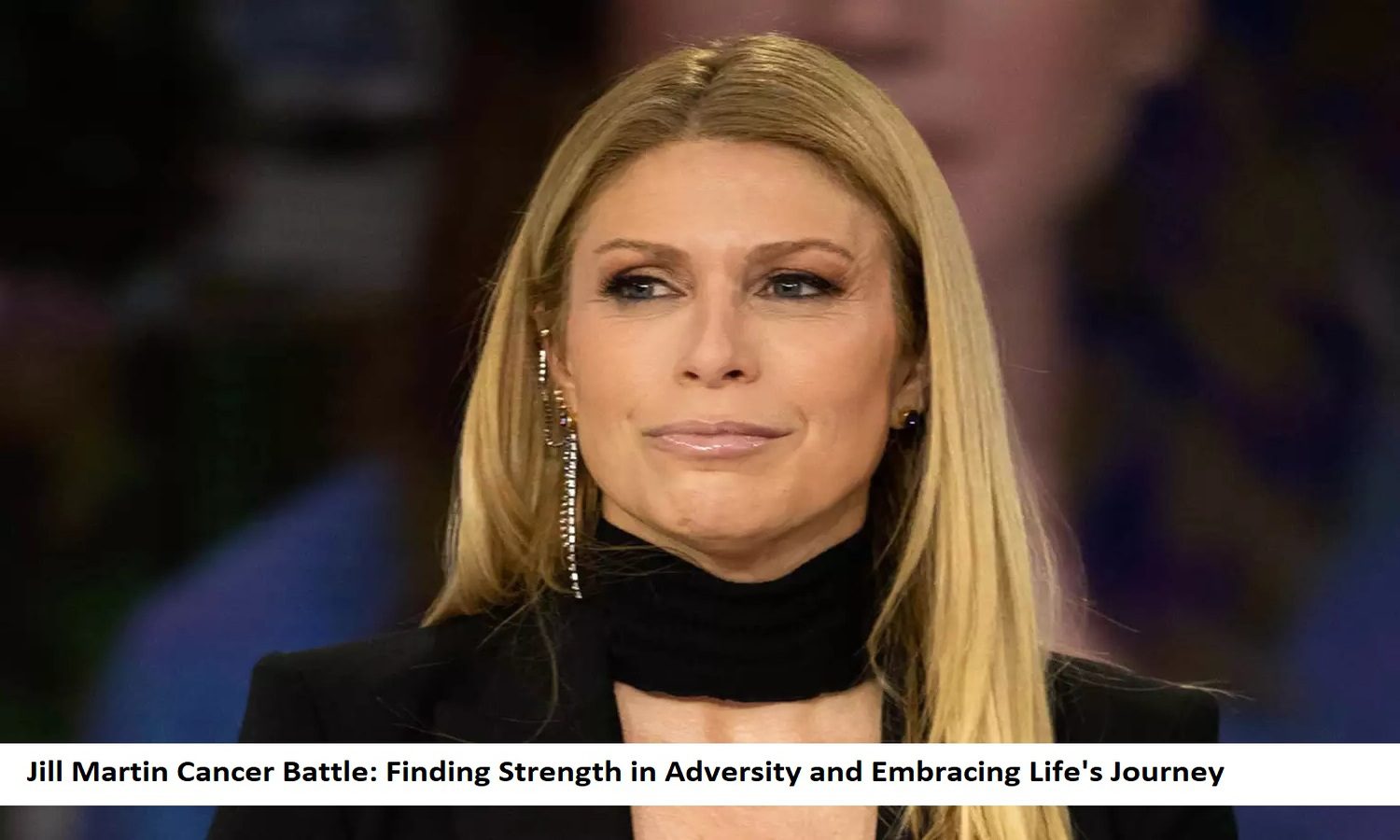Jill Martin Cancer Battle: Jill Martin, a Today Show contributor, is upbeat about her cancer battle. Her breast cancer treatment seems to be progressing well, even though she may need chemo. She was diagnosed with a BRCA gene mutation in June, starting her story.
Martin described the preceding six weeks as a mix of quick moments and a lifetime. Her path has been a mix of mental ups and downs and a feeling that time has stopped. She had surgery three weeks prior, according to her Today update. After a double mastectomy, she’s physically fine but mentally exhausted.
Dr. Joseph Sparano of Mount Sinai in New York City offered her excellent news during their visit. Martin needs more treatment to be sure she’s cancer-free. Genetic testing, albeit alarming, can save lives, according to Martin.
Martin’s supporters’ love and support have enabled her to speak forward. Hope messages have helped her health and happiness throughout this challenging period. She appreciates that they recognize that everyone’s path is different and have had comparable experiences. This makes decisions highly personal. Martin emphasizes the importance of making life-affirming choices.
Martin took a home BRCA gene test because her family has breast cancer. This exam reshaped her. Genetic tests indicated a BRCA2 gene mutation, demonstrating its importance. Because of her age and family history, she took preventive measures to reduce her breast and ovarian cancer risk.


Martin is determined despite knowing there will be issues. She will have another surgery to minimize her chance of ovarian cancer, then a full hysterectomy. She may also undergo chemotherapy and use anti-hormonal medicines for five years. The journey was emotional, as Martin felt melancholy thinking about treatment.
Martin feels her time on the broadcast will fluctuate as she gets better. She wants to continue writing about her travels. Martin’s perseverance illustrates how strong the human spirit can be.
READ MORE: Inclusive Blood Donation: MSM Can Now Donate Blood Freely, Thanks to American Red Cross
Our Reader’s Queries
What is the survival rate for invasive ductal carcinoma grade 3?
Stage 3 breast cancer, also known as locally advanced breast cancer, involves the spread of cancer to multiple lymph nodes and nearby tissues, but not to other parts of the body. This stage, which includes invasive ductal carcinoma (IDC), is more advanced than stage 2. The 5-year average survival rate for stage 3 breast cancer is 80.2%.
What is the life expectancy of Eribulin patients?
After about 2 and a half years, the average amount of time before the cancer started growing again was approximately 3 months, with a range of less than a month to over 2 years. The average lifespan after diagnosis was about 11 and a half months, with a range of less than a month to just over 2 and a half years.
What is the life expectancy of someone on Ibrance?
In the latest examination of the phase 3 PALOMA-2 trial, it was found that patients who took the Ibrance-Femara combination lived for a median of 53.9 months, while those in the solo Femara group lived for a median of 51.2 months. Although the trial aimed to detect a 26% decrease in the risk of death, Ibrance only showed a 4.4% advantage.
Can you live a long life after a mastectomy?
Regardless of the type of treatment you received – surgery, chemotherapy, radiation therapy, or hormone therapy – your body requires time to heal. Thankfully, with the advanced treatment options available today and early detection, individuals who have survived breast cancer can look forward to a long and fulfilling life post-treatment.

